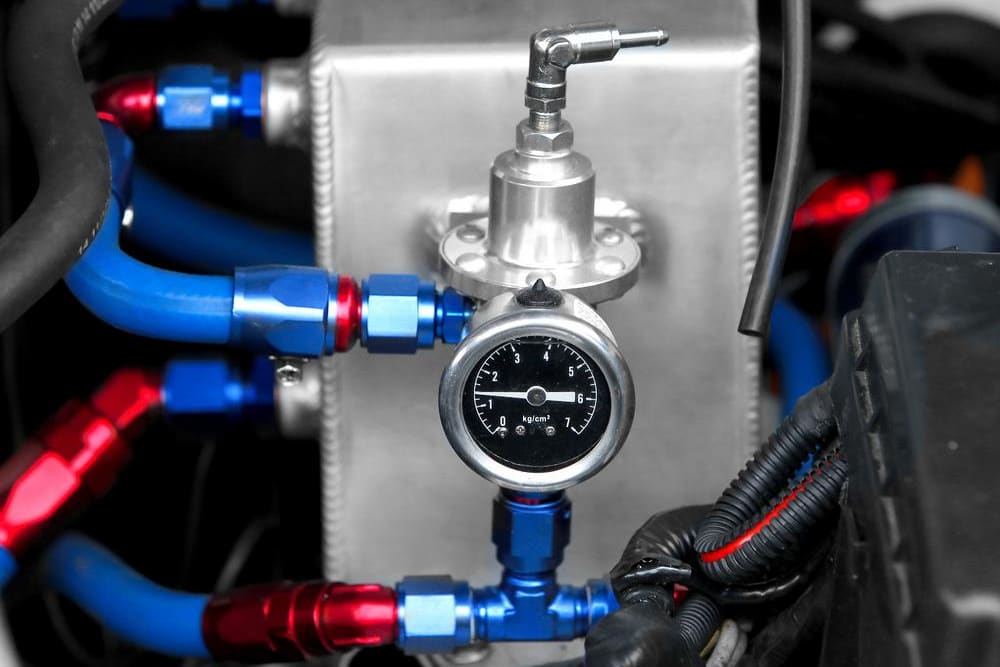

The fuel pressure regulator is an engine management component that is found in one form or another on virtually all internal combustion engines. It is a component of the vehicle’s fuel system, and as it’s name implies, is responsible for regulating the pressure of the fuel flowing through the system. Different engine operating conditions will require different amounts of fuel, which can be metered by changing the fuel pressure. Many fuel pressure regulators use vacuum operated mechanical diaphragms to change the pressure, though there are vehicles that are equipped with electronic fuel pressure regulators. Because the fuel pressure regulator plays a direct role in the distribution of fuel to the engine, any issues with the component can potentially cause performance issues and other problems for the vehicle. Usually a faulty fuel pressure regulator will produce a few symptoms that will alert the driver of a potential issue.
1. Misfires and a decrease in power, acceleration, and fuel efficiency
One of the first symptoms of a possible issue with the fuel pressure regulator is engine performance issues. If the vehicle’s fuel pressure regulator fails or has any issues it will disturb the fuel pressure of the vehicle. This will in turn throw off the engine’s air fuel ratio and tune which can have a dramatic effect on the performance of the vehicle. A faulty fuel pressure regulator may cause the vehicle to experience misfires, a reduction in power and acceleration, and a drop in fuel efficiency. These symptoms can also be caused by a wide variety of other issues so having the vehicle properly diagnosed is highly recommended.
2. Fuel leaks
Another symptom of an issue with the vehicle’s fuel pressure regulator is fuel leaks. If the fuel pressure regulator’s diaphragm, or any of the seals fail, fuel leaks can occur. A faulty regulator can not only leak gasoline, which is a potential safety hazard, but can also cause performance issues as well. A fuel leak will usually produce a noticeable fuel smell, and may also cause engine performance issues.
3. Black smoke from the exhaust
Black smoke from the exhaust is another symptom of a potential issue with the vehicle’s fuel pressure regulator. If the fuel pressure regulator leaks or fails internally, it may cause the vehicle to emit black smoke from the tail pipe. A faulty fuel pressure regulator can cause the vehicle to run excessively rich, which apart from reducing mpg and performance, can cause the vehicle to produce black smoke from the tailpipe. Black smoke can also be caused by a variety of other issues, so having the vehicle properly diagnosed is highly recommended.
While some fuel pressure regulators are built into the fuel pump assembly, most fuel pressure regulators are mounted in the fuel rail and can be serviced independently of the rest of the system. If you suspect that your vehicle may be having an issue with the fuel pressure regulator have the vehicle inspected by a professional technician, such as one from YourMechanic, to determine if it should be replaced.



